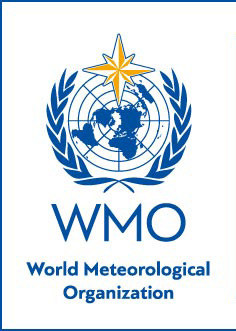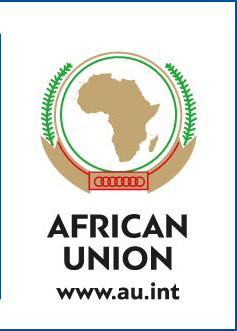Ministerial Conference Discusses Integrated African Strategy for Meteorology
Addis Ababa/Geneva/Victoria Falls, Zimbabwe 12 October 2012 - The development of an integrated African strategy for meteorology to meet challenges such as climate change and extreme weather hazards will be top of the agenda at a ministerial conference in Zimbabwe, 15-19 October, 2012.
The Second Session of the African Ministerial Conference on Meteorology will also focus on how to improve weather and climate services for sustainable development, particularly for priority sectors such as agriculture, water, health, disaster risk reduction and transport.
The meeting, to be held in Victoria Falls, Zimbabwe, is organised by the World Meteorological Organization, the African Union Commission and the Government of Zimbabwe. It follows on from the inaugural 2010 First Ministerial Conference of Ministers Responsible for Meteorology in Africa, which adopted the Nairobi Declaration calling for the strengthening of National Meteorological and Hydrological Services.
“The African continent is particularly vulnerable to climate variability and climate change, exacerbated by poverty and environmental degradation,” said WMO Secretary-General Michel Jarraud.
“Weather and climate related disasters hit Africa all too frequently. For example, in the space of a year, the Sahel region has been visited by drought and floods, and the perennial challenge of desertification is now compounded by a looming locust invasion. We need cross-cutting policies to prevent these natural hazards from becoming disasters,” he said.
“Development of an Integrated African Strategy for Meteorology (Weather and Climate Services) will strengthen the position of weather and climate services as an essential component in national and regional development framework and sustainable development in Africa, particularly in poverty reduction efforts, climate change adaptation and disaster risk reduction,” said Ms Tumusiime Rhoda Peace, AU Commissioner for Rural Economy and Agriculture. “It will also enhance cooperation between African institutions and strengthen the capabilities and relevance of National Meteorological and Hydrological Services.”
Meteorological services in Africa fall under the responsibility of various ministries, such as Transport, Equipment, Agriculture and Environment. This makes it all the more important to strengthen the institutional framework of weather, climate and hydrological services to meet the many challenges facing the continent.
Africa covers one fifth of the world’s total land area but has the least developed observation network of the world. It amounts to only one eighth of the minimum density required by WMO. Moreover most meteorological services have insufficient human and financial capacity.
Despite the constraints, there are some examples of successful provision of weather and climate services.
Extreme Weather Forecasting in Southern Africa: A demonstration project for forecasting extreme weather conditions has been set up in six southern African countries: South Africa, Botswana, Madagascar, Mozambique, the United Republic of Tanzania and Zimbabwe. It provides the public with more accurate information on the risks of heavy rains and damaging winds.
Mozambique, where floods in 2000 caused more than 700 deaths and reduced economic growth from 10 to 2 per cent, has succeeded in mitigating the adverse effects of subsequent flooding by means of reliable forecasts, communicated to the population in easily understood language.
This project is to be extended to all Southern African Development Community (SADC) countries, the Comoros and other regional economic communities in Africa.
Climate and health services for meningitis control: The meningitis belt stretches from Senegal to Ethiopia and affects nearly 300 million people. Dust and very low levels of humidity, combined with population movements, have been identified as very important factors in the spread of the disease.
A better understanding of the climate and environmental determinants of meningitis will help to refine the identification of areas at risk, measure and forecast a modification of the Meningitis Belt and adapt control and preventive measures accordingly. Quality meteorological and climate products and services will play an important role in supporting the large-scale introduction of the meningitis conjugate, a vaccine which is expected to dramatically change the epidemiology of meningitis in Africa.
Information Increases crop yields in West Africa: In Mali, effective use of meteorological and climate services during the rainy season reduced the rate of replanting by 35 percent and increased crop yields by 20–25 percent, thereby boosting farmers’ income. Other countries in West Africa are now following the example of Mali.
A series of workshops have been held in West Africa to try to make climate services accessible and relevant to the needs of users like farmers. These are pilot projects for the Global Framework for Climate Services which is currently being developed by WMO in conjunction with other partners within and outside the United Nations system.
Regional Climate Outlook Forums have been established throughout Africa and now routinely issue seasonal climate outlooks. The information generated by the regional outlooks is downscaled to national and local levels and has become an important management tool for the food security, water, disaster risk reduction and health sectors.
Global Framework for Climate Services
Existing climate services will be strengthened and extended by the Global Framework for Climate Services (GFCS), which is an international partnership of governments and organizations that produce and use climate information. It aims to build on scientific advances to strengthen and expand climate services, with a particular emphasis on the 70 developing countries – mostly in Africa – which currently have little or no climate information and are especially vulnerable to the climate variability as well as climate change.
The Global Framework for Climate Services will enhance partnerships between providers of weather and climate services and those who use these services, such as government decision makers, city planners, water managers and farmers. It is also intended to enhance regional and sub-regional cooperation.
In this respect, AMCOMET, with support from the African Union Commission will be a key player in the development of the Global Framework for Climate Services. The AMCOMET session will discuss its implementation in Africa, and report to an Extraordinary Session of the World Meteorological Congress 29-31 October. Decisions and recommendations emerging from the Conference will submitted the relevant organs of the African Union.
WMO is the United Nations’ authoritative voice on weather, climate and water
For more information please contact:
At WMO:
Clare Nullis, Media Officer, WMO, Tel +41 (0)22 730 8478
Michael Williams, Chief, Communications and Public Affairs. Tel: +41 (0)22 730 8315
At AUC:
Wynne Musabayana, Deputy Head, Division of Communication and Information, Tel: +251 115 517 700


